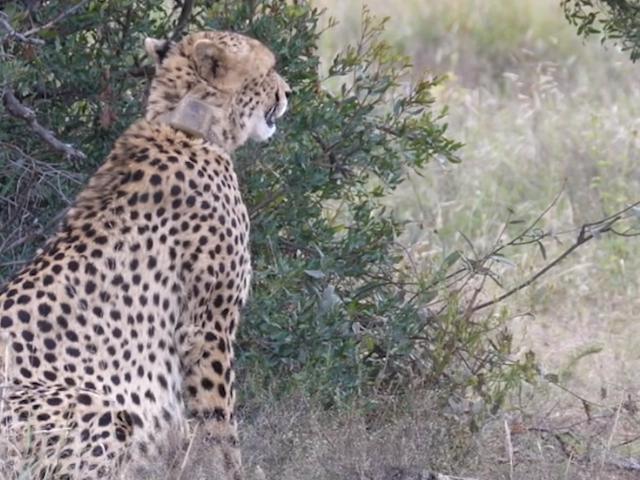Amidst controversy created by the death of cheetahs both in India and South Africa, the forestry and environment ministry of the African nation said the 11 remaining cheetahs will be released in the free ranging conditions “over the next two months.” Interestingly, there is no commitment on cheetah release from Indian officials. Two cheetahs died in Kuno national park – one each from South Africa and Namibia. After the death of Uday, the South African cheetah, the main opposition party has also questioned the minister of Forestry, Fisheries and the Environment, Barbara Creecy, on the export of 12 cheetahs to India. Two MPs from the the opposition Democratic Alliance Hannah Shameema Winckler and Dave Bryant have sought explanation from the minister and accountability for the cheetah death. This has happened two months after lawyers of an animals’ rights organisation in South Africa petitioned the minister to stop the cheetah export until the risks to the animals’ survival are properly established. They deemed the export illegal.
Unilateral Announcement Of Cheetah Release By SA
A South African spokesperson on April 27 said, “This is a critical phase of the project, with cheetahs being released into larger environments where there is increasingly less control over their day-to-day wellbeing. “ The spokesperson also said that the risks for injury and mortality will be increasing, and these risks are factored into the reintroduction plan. “The remaining eleven South African cheetahs will be released into free-ranging conditions over the next two months, the spokesperson announced .Caught in July 2022, the South African cheetahs have been in enclosures for the past almost 10 months. Even the African experts are getting jittery and want the cheetahs to be released in the wild. Uday was suffering from chronic stress, South African cheetah expert Vincent Van Der Merwe said after his death. Merwe is the head of metapopulation project and caught the cheetahs for translocation. “Like the 11 others, he was a wild cheetah. He was very healthy before shifting to Boma in July 2022 for the translocation project. After 10 months in captivity, he lost fitness and suffering from chronic stress,” Merwe said, adding that the animals must be released in the wild. “The cheetahs must go back into the wild where they belong. They are unhappy in cages,” he said. Kuno is an unfenced protected area that supports a high density of competing predators including leopards, wolves, sloth bears, and striped hyenas. It is anticipated that, as observed with cheetah reintroductions in Africa, a few of the founder population may be lost within the first-year post-release”, the south African spokesperson added.
Also read: Stressed & Unhappy After Long Captivity , Kuno Cheetahs Need To Be Released In The Wild
There are 15 cheetahs waiting – 12 from South Africa and 3 from the 8 exported from Namibia- for the release in the open forests of Kuno, a national park originally planned , prepared and developed for the second home of the Asiatic lion. African cheetahs are not even mentioned in our National Wildlife Action Plan (2017-2031), but they are being prioritised over many endangered species such as the Great Indian Bustard and Asiatic lion, Ravi Chellam ,a wildlife biologist and coordinator of the Biodiversity Collaborative, Bengaluru, has underlined . An international community of cheetah experts including Chellam have also been of the view that the project cheetah was “ unscientific in approach” .
Forestry Minister of South Africa Questioned
In a statement issued by two South African MPs Hannah Shameema Winckler and Dave Bryant of the DA said, “The cheetahs were exported, despite widespread apprehension, including the fact that the 2021 non-detrimental findings pertaining to cheetahs had not been adopted”. “We therefore call on the Minister to provide an explanation for the decision to export the 12 cheetahs to India without a formalised non-detrimental finding that has gone through public consultation. The conservation of South Africa’s biodiversity should always be a top priority, and we hope that the Minister will take the necessary steps to uphold this responsibility”, they said.Though the Cheetahs were captured in South Africa from private sanctuaries in July last year, they were translocated to India in February following a delay in signing of MoU between the two countries.
Also read:Tiger In Chain, Arunachal Forest Minister Goes For Walk
And when the cheetahs were still being translocated, there was a last minute effort to halt the process. Lawyers acting for the EMS Foundation ,an organisation working for the rights and general welfare of wild animals, children, elderly persons and other vulnerable groups in South Africa, petitioned Environment Minister Barbara Creecy to stop the export until the “risks to the animals’ survival are properly established and public comment has been obtained.” They have deemed the export effectively illegal. EMS Foundation lawyers say the export “is based on an outdated non-detriment finding (NDF) – such findings by the Scientific Authority are required to ensure export is not detrimental to the wild population.” They say the finding permitting the cheetah export was based on a 2020 NDF that is out of date, was not ratified and was only issued for public comment.
By Deshdeep Saxena
Representative Images
.




